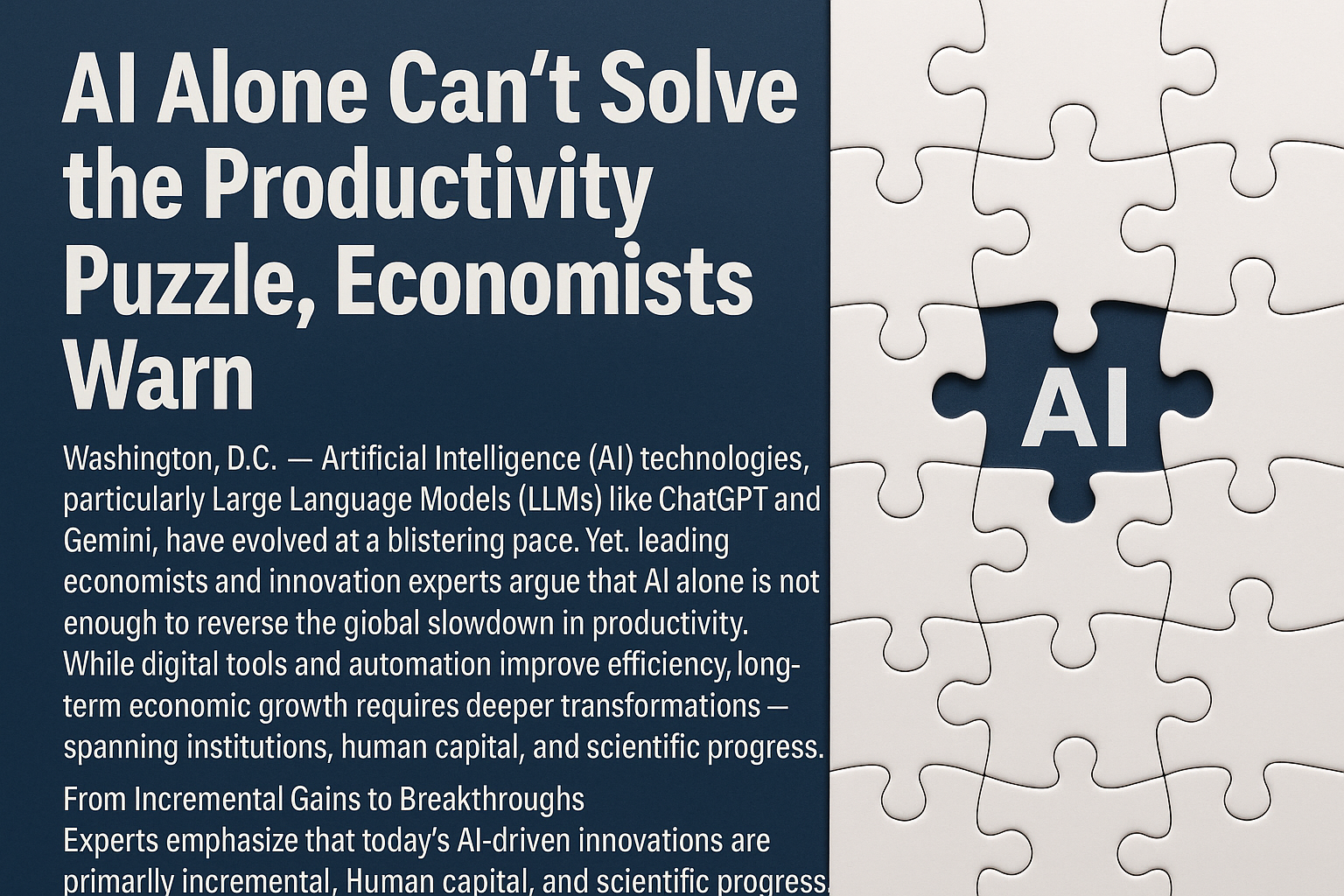AI Alone Can’t Solve the Productivity Puzzle, Economists Warn
Washington, D.C. — Artificial Intelligence (AI) technologies, particularly Large Language Models (LLMs) like ChatGPT and Gemini, have evolved at a blistering pace. Yet, leading economists and innovation experts argue that AI alone is not enough to reverse the global slowdown in productivity. While digital tools and automation improve efficiency, long-term economic growth requires deeper transformations—spanning institutions, human capital, and scientific progress.

The Age of AI and the Productivity Paradox
Despite rapid AI adoption, labor productivity in many industrialized nations has remained stagnant for over a decade. According to the International Productivity Forum, AI-powered tools have brought efficiency gains in sectors such as legal research, coding, and customer service. However, these gains haven’t translated into widespread economic growth.
“AI is like a turbocharger for innovation,” said Dr. Hannah Liu, senior researcher at the Global Innovation Lab. “But if your institutions, people, and infrastructure aren’t ready, the turbo won’t help.”
From Incremental Gains to Breakthroughs
Experts emphasize that today’s AI-driven innovations are primarily incremental. LLMs can synthesize vast volumes of research and generate new ideas, but real breakthroughs still depend on interdisciplinary collaboration and human creativity.
“AI makes research more productive,” noted Dr. Miguel Alvarez of Stanford’s Digital Economy Lab. “But major scientific advances come from new combinations of ideas—something AI can support, but not originate.”
Institutions Must Evolve
A key challenge is institutional inertia. Many organizations continue to rely on outdated systems that are poorly integrated with AI technologies. Leadership often lacks the vision, flexibility, or incentives to harness AI for transformative change—limiting adoption to minor process improvements or automating repetitive tasks.
“To unlock AI’s full potential, both public and private sectors must rethink how they hire, train, and govern,” said economist Sarah Mendoza. “We can’t just plug in ChatGPT and expect a miracle in productivity. AI must reshape how organizations operate.”
AI: A Catalyst, Not a Cure
There is growing consensus among economists that while AI is a powerful catalyst for innovation, it is no silver bullet. Without concurrent investments in education, research, ethical governance, and interdisciplinary collaboration, AI risks reinforcing existing inequalities rather than solving the productivity dilemma.
The Road Ahead
As governments and companies invest billions in AI, a more holistic view is essential. “We should not see AI as an endpoint,” said Dr. Lisa Choi of the OECD, “but as one part of a broader innovation ecosystem. Only then can we unlock the next wave of technological advancement and economic resilience.”
For now, the productivity puzzle remains unsolved. But with AI guided by human intent—and supported by strong institutions, education, and collaboration—it may yet become a key piece of the solution.


